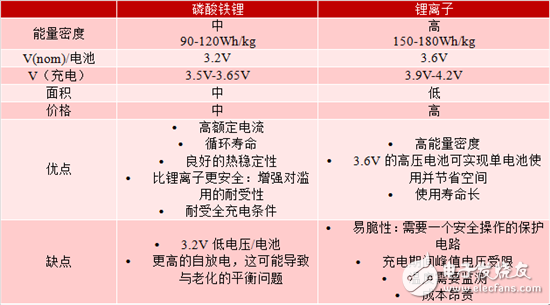The European Parliament's eCall regulatory law was passed in 2015 and came into effect in April 2018, requiring all cars released on the European market to be equipped with eCall. Due to the characteristics of the eCall system, the system is independent, reliable and maintenance-free, and it is important to have its own battery independent of the car battery. The battery must have enough energy for a 10-minute call, remain connected to the cellular network for 60 minutes after the initial call, and can be operated at any time. The most common battery chemistries used in this application are lithium ions (Li ions) and lithium iron phosphate (LiFePO4). LiFePO4 batteries are safer because they have a higher thermal runaway temperature but have a higher self-discharge, which can cause balance problems after a period of use. Lithium-ion batteries have a high energy density, but require a protection circuit to operate safely. Table 1 compares LiFePO 4 and Li ion batteries. Lithium ions have a high density and have been used in space-constrained applications to meet run-time requirements.

Table 1: Comparison between LiFePO4 and Li-ion batteries
Figure 1 is a power tree diagram of a typical eCall system using a single-cell LiFePO 4 or Li-ion battery. As you can see, a DC/DC buck converter is needed to reduce the car battery voltage from 12V to 5V. A linear charger for the 5V rail can then charge the battery, while a 5V rail rail provides GSM (Global System for Mobile Communications) modules, MCUs, GPS modules, and audio amplifiers.
e 1: Comparison between LiFePO 4 and Li-ion batteries
Figure 1: Power Tree Diagram for the eCall System (Image courtesy of Chris Glaser, BMS Deep Dive 2015)
As an example of a battery management solution, the bq25071-Q1 can charge LiFePO4 batteries, while the bq24081-Q1 and bq24075-Q1 can charge lithium-ion batteries. All three are automotive Q100 grades with integrated safety features such as undervoltage, overvoltage, short circuit and thermal protection to help ensure safe charging operation. The bq27441-G1 uses TI's patented Impedance TrackTM algorithm for battery power measurement and helps maximize battery life. For other safety features, the bq29700 provides accurate monitoring and triggering thresholds for overcurrent protection during high discharge/charge current operation or battery overcharge conditions.
As eCall becomes mandatory in the car, TI is ready to offer a complete turnkey solution to support an independent and reliable eCall system.
Car Charger,Car Phone Charger,Car Mobile Charger,Wireless Car Charger
SUNSHINE ELECTRONICS TECH. CO., LTD. , https://www.benefitucx.com